Lifestyle
Contrary to beliefs, only 1% of Roma living in Russia continue to live a nomadic life. Most of the people settled long ago and found a permanent place of residence. That is why it is impossible to talk about the uniformity of the way of life in the communities, because over the years the nomads adopted the traditions of the land in which they found refuge.
However, this is almost the only people who, despite such disunity, have preserved their language, ethical and moral canons, as well as visible attributes of culture: clothing, jewelry, standards of beauty. Traditionally, Gypsies live in large families in a common house, sometimes in small ones, but not far from each other, in the neighborhood, thus forming an ethnic settlement.
Since historically these are immigrants from India and many still even understand Hindi, they also maintain a division into “castes” based on financial status. However, you cannot get it for money. You can improve your position only by gaining trust and respect. The head of the clan is the council of elders, which assumes the responsibilities of a manager, a household judge, and an adviser. Families listen to older generations, adopting life experience and home rules.
Cloth
| Gypsy customs regarding appearance are also dictated by their Eastern origins. Bright colors, coin beads, and an abundance of jewelry are echoes of Hindu folk festive clothing. |
For women, it is mandatory to wear floor-length skirts, and relatively short ones are only allowed for little girls. But they themselves don’t want to wear them for a long time, since length is considered a sign of growing up. And the more jewelry a young wife has, the more her husband and his family love her - this is what the gypsies believe.
There is a belief associated with aprons, which are part of traditional attire: anything that a married or adult woman steps on is considered unclean or defiled. Even shoes and items of clothing below the waist fall under this rule.

Gypsy beliefs
Starting to get acquainted with the traditions of the Roma, I would like to draw attention to the worldview of this people. Gypsies have a concept of desecration that is associated with the lower part of a woman's body. A representative of the fair sex simply needs to walk through a certain place for it to be considered desecrated.
To avoid this, many gypsy women wear a long apron, which protects those around them from “filth.” In addition, it is considered unacceptable for Gypsies to cut their hair short. The concept of a person’s honor depends on the length of hair. Even today, Gypsy men avoid having their hair cut too short.
The predilection of women for jewelry is known among many peoples, and among gypsies, earrings in the ear can be seen on men. If a gypsy is decorated with one small thick earring, this means that he is the only son in the family. In this case, he has the right to the entire inheritance of his parents, but must remain with them until their last days and take care of them.
Hair
Roma have long hair. In everyday life, girls braid them into braids and collect them in the form of a bun, hide them under a scarf, but whenever possible they try to show everyone the beauty of long black curls. Men also adhere to these canons. There were never clear instructions regarding mustaches and beards; everything depended on the era and location of the camp. By nature, gypsies could not have weak and short hairstyles; their hair grew thick from an early age.
Short haircuts were evidence of defilement, that is, temporary excommunication from the clan, expulsion, renunciation. Such a punishment should have been received only for a significant offense, but there was still hope for return, since the hair was growing back. For a girl, such a hairstyle was considered a terrible disgrace. Even in the modern world, they remember this written rule, considering a short haircut “unlucky.”

Cultural characteristics
There are several dozen people in Roma families.
All relatives are invited to the funeral, so this process is quite large-scale and rich. The culture of this ethnic group does not allow autopsy of corpses for medical examination. According to legends, the mutilated body of a deceased person will not be able to find peace in the afterlife. But without a medical examination it is impossible to obtain a death certificate, so modern gypsies agree to the procedure. The main thing is that after the autopsy all organs remain in place.
Professions
Due to their character traits and skills, these people cope well with trading. And due to independence and partial detachment from government authorities, he understands construction in order to build his own houses.
In Soviet times, there was a turning point when the authorities gave the go-ahead for integration and created favorable conditions for the introduction of nomadic people into union life. At that moment, many representatives acquired quite ordinary professions, and some became titled artists of song and dance groups.
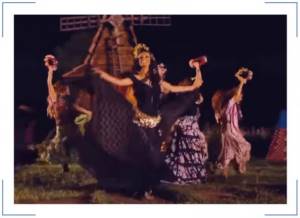
There are also professions in which careers are not welcomed in the Roma community:
- journalist;
- factory worker;
- street cleaner.
Return to contents
House
As mentioned earlier, many families live in one building - parents, sons and daughters-in-law, their children, and often grandchildren. For such a crowd there should be enough room for everyone, since the gypsies are not used to feeling discriminated against in any way. That’s why houses are built to perfection—several floors, with large windows, long galleries or columns. It is interesting that sometimes famous architectural monuments become inspiration for construction - their silhouette can be traced in the facade.
The building is decorated fundamentally - with large statues, forged items, and gilded elements. Here they do not waste time and money on small details - luxury and abundance should be visible from afar, and the paint will peel or fade every year. Apparently this is why such houses often look unfinished, although they have been inhabited for a long time. But this is better for the gypsy soul than living in an apartment “box”.
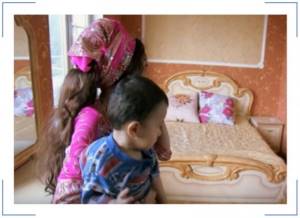
Dishes
Craftswomen are accustomed to surprising their families with a variety of treats, but the table is especially crowded when they receive guests. For a wedding or father's birthday, the feast is prepared by the whole family (the female half), and preparations are made several days in advance.
Historically, gypsies love game, stewed or fried meat dishes. But an unusual highlight that can surprise a traditional table is hedgehog meat. They began to prepare them during the times when they traveled in camps - they had to set up lodgings for the night wherever they had to, and everything that was at hand was used for food.

Traditions and rituals
Gypsy funerals have always caused surprise among other peoples, since they are more reminiscent of a birthday or wedding. The funeral lasts 3-4 days, they include cheerful feasts with songs and dances. The burial ceremony is accompanied by many unusual actions.
Main funeral traditions:
- — Death is the rebirth of the soul. For reincarnation, a bird is brought to the dead man's mouth, after which it is released.
- — The funeral was accompanied by mass processions or motorcades, depending on the status of the deceased.
- — Previously, the dead were simply left on the side of the road. With the transition to a sedentary lifestyle, the dead began to be buried in cemeteries. The inside of the grave is paved with bricks and covered with a concrete slab on top.
- — Each guest dresses brightly with lots of jewelry. The deceased's clothing is also made in contrasting shades and is richly decorated.
- — Almost all of the dead man’s belongings (from booze bottles to vehicles) are buried with him. Perhaps this ritual was borrowed from the Egyptians, who were sure that everything would be useful in the other world.
- — It’s not customary to be sad and cry at a wake. The funeral meal is rich and luxurious. Guests sing songs, dance and have fun. If relatives are sad, then it will be difficult for the soul of the deceased in another world.
Despite the luxurious veneration of the deceased, death was still considered dirty. The Roma could not die in their own bed, since their death desecrated the house. Sick family members were taken to a special tent, where they said goodbye to life.
Money
Considering the scale of wedding celebrations and the splendor of the architecture, we can safely conclude that there is considerable money to be made here. However, do not delude yourself, because the Roma know what “credit” is. Only they take it from none other than the elder, or at least from each other.
Both men and women earn money in the family. Moreover, physical labor is not encouraged among the stronger sex. More often, financial flow is associated with profitable trade deals and barter. In our everyday life there is a response from frequent communication with enterprising Roma - the word “lave”, which the Gypsies pronounce with an “a”. It means the same thing that is commonly understood by jargon - money.

Religion and morals
Everything about the gypsies, their way of life and their customs is told by their religion. For the most part they are Christians - Orthodox, Catholics, even Protestants. Community and affinity brought prosperity on the path of faith to the hearts of the Romals. There are always large gold crosses among the gold jewelry, and prayer is present in everyday life, even though the people are not accustomed to church. It is worth noting that faith in one’s roots and devotion to the people are much stronger than the spiritual experiences in the lives of these people.
Freedom-loving nomads here wanted to do things their own way, so they do not observe some canonical rituals. But headscarves, which women wear almost without fail, are considered by some historians to be an attribute of Christianity.

Return to contents
Early marriages
Parents want to marry off their daughter and marry their son as early as possible, not at all for selfish purposes, in order to get rid of the burden of guardianship. Quite the contrary, it is a manifestation of care, because gypsies believe that the less time there is for teenage nonsense, the greater the chances of creating a family from a worthy, chaste couple.
This is useful for the girl, since the daughter-in-law comes to her husband’s house and becomes under the protection of her mother-in-law - she manages the process of running the house, cooking, caring for her husband and relatives. A young, flexible disposition comes in very handy here, since the young wife becomes a working hand not only for her husband, but also for his entire family.
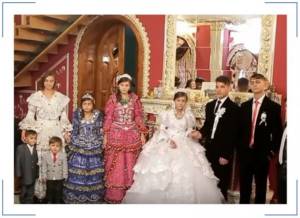
Women
The head of a gypsy family is a man. A woman should be meek and submissive. The customs are similar to those of Muslim countries. In large houses, the first floor is for women. It is prohibited to go up to the second floor of the house.
Gypsies wear multi-layered skirts. The style was originally taken from Italian women and later changed, according to the canons of gypsy culture. The skirt consists of three parts. This is due to the fact that the lower part of the female body is considered unclean, a breeding ground for sin. Therefore, the petticoat is considered dirty; another one is put on top of it, it is supposedly cleaner. And gypsy women wear an apron on top - it is completely unsullied by sin, even men can wipe their hands on it.
Will be introduced on March 1: a new road sign will appear in the country
Cake “Soaring Grapes”: a recipe for a tender and delicious dessert
Elon Musk wants to sell off his wealth to settle Mars
The richer the gypsy skirt, the more attractive the bride. Therefore, it is customary to hang various trinkets on the skirt, sew on flowers and bright fabrics. Interestingly, it is considered a terrible insult if a gypsy waves or touches another person with her skirt. After this he will be disgraced.

Chastity
For many nations, the fidelity of spouses is important, and this is no exception. But here the attention to this issue is enormous. Keeping yourself clean is a prerequisite for marriage, at least for the bride. On the first night of the wedding, guests joyfully accompany the couple to the bedroom, and then meet to test the girl's innocence. Above the newlyweds, a sheet from their bed is opened, on which there should be traces of a chaste life before marriage. Great shame awaited the newly-made wife if he was not there. And if the outcome was good, the young lady was praised, covered her head with a scarf and put on a new dress.
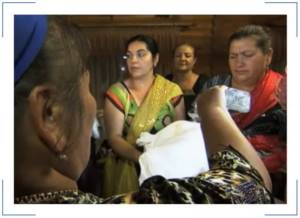
Subtleties of burial
Gypsies are wary of strangers and do not share their culture with them. Some features of the burial became known from the words of eyewitnesses who happened to be at the farewell ceremony.
How Roma are buried:
- — The corpse is embalmed. It is believed that the soul of the deceased remains next to the body for 40 days, so some manipulations are carried out to stop the decomposition process.
- — Before the funeral, the deceased is placed in a “bender” (tent), which is located on the street.
- - Preparing the body includes bathing in herbal infusions and dressing in bright clothes. Conspiracies are read over the deceased in their native language.
- — The funeral lasts 3-4 days, since all relatives must say goodbye to the deceased.
The scope of the funeral depends on the social status of the deceased. The baron and his relatives are buried with special luxury. Cars, jewelry, and large sums of money are placed in the grave along with the coffin. An expensive monument is placed at the grave, on which a portrait of the deceased and his relatives is engraved.
Life of the young
The girl always moved to live in the house of her husband and his family. When the parents decided to move their eldest sons, their joint efforts built separate housing for the new “unit of society.” This sometimes happened even when they had a couple of children.
This approach to everyday life was caused not only by economic factors. The mother-in-law practically took her daughter-in-law for re-education, trying to make her an ideal woman who could please her beloved son.
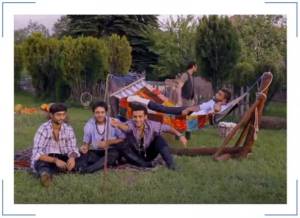
And indeed, it is not customary here to “build” a man. The wife is silent, obedient, efficient and even independent. She does not save money if her husband cannot provide for all needs, she goes and earns it herself. Divorces are rare here, but not because of custom and severity. It’s just that the family way of life is always under the strict supervision of the community and with the advice of elders.
Family
Gypsy boys and girls start families very early. At the age of 14 they are already considered sexually mature and ready for marriage. Nationalities prefer not to mix. If the children's choice does not coincide with the parents' expectations, then the groom may kidnap the bride. True, there is no magnificent wedding after this.
The marriage is fun and noisy; there is even a common noun phrase “gypsy wedding”, meaning unbridled fun, dancing, songs and a round dance of relatives. During the celebration, girls who have turned 14 dance, knowing that potential grooms will choose their bride. The age before which you need to get married is 19 years old, otherwise there is a chance to remain a “girl” for the rest of your life.
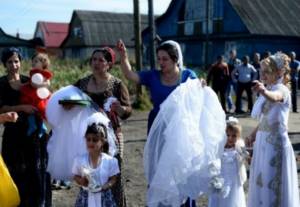
Before the wedding, the groom's parents buy the bride. The bride's father sets the price in gold. Its quantity is measured in three-liter jars. The number of jars of gold the father assigns is the same amount the groom must bring for the wedding to take place. Inviting a toastmaster or manager is bad form. Their responsibilities are assumed by the head of the family or the eldest in the family.
Chocolate plum pie: a recipe for a simple but beautiful and tasty dessert
Can a person resist scary dreams: pandemic dreams
UK introduces new rules for travelers due to COVID
Previously, before giving the bride to the marriage bed, women took her to a separate room. There the presence of innocence was tested. In the morning, the newly formed cell of society went to the bedchamber, after which everyone was provided with proof of the bride’s purity in the form of a sheet or bedspread with traces of blood. Now this tradition continues to be maintained. The bride must be a virgin, otherwise it is a shame for the family. A man can “take a walk” before the wedding.
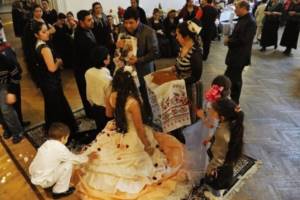
Passion for horses
This feeling is passed on through genes. Rings, decorative items and household utensils are decorated with the symbols of horses. The boys knew everything about these beautiful animals from an early age. Of course, with the new way of life, not everyone can afford to have a herd, but every gypsy should ride a horse at least once in their life. Just as they used to show off their horses, now they are trying to stand out with their cars.

Preparing for the funeral
Gypsy funerals also include a preparatory stage. This is expressed in the creation of a separate savings fund for a luxurious funeral. Alternatively, a grave in the cemetery can be purchased in advance; in all other respects, much depends on the religion of the tribe itself.
Most gypsies are Christians, therefore all the traditions of Orthodoxy and burial are inherent in them. The body of the deceased is washed, but not with plain water, but with an infusion of herbs, while prayer is replaced with incantations.
Folklore
Gypsy traditions are concentrated in the creativity of generations. The people's gift to us was the surprisingly pleasant type of song - romance. Carrying the wisdom of hundreds of kilometers from district to district, the Roma showed how they know how to love through deep lyrics and soulful music that cannot leave anyone indifferent.
And if the lyrics of the nationality became familiar to the whole world through soulful voices, then their fun and fervor became clear to us through dances. Noisy, bright, relaxed, with flying hems of fluffy skirts and the melody of coins on the dancers’ chests - they became a symbol of joy and freedom once at fairs and holidays, and now at competitions among professional choreographic groups.
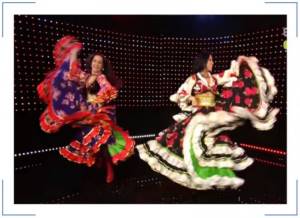
Return to contents
Gypsy law
An oral set of rules and agreements that differ among residents of different areas, but are united in general values. They regulate relations within the community, outside it and on the border of these concepts. According to him, the elders have the last word both in resolving the issue of judging and in choosing punishment for those who have acted treacherously.
The most important and interesting tenets of Gypsy law state that:
- Neither can be superior to the other;
- If a Roma enters into a relationship with a person from the outside, it must be built on external principles;
- Mixed marriage is not encouraged, although it is not prohibited.
- Most rules regulate decent appearance for both sexes, traditions of life and communication in the family and society.
Gazeta visited the gypsy baron
We continue to introduce readers to the life, traditions and customs of different peoples of Crimea. Today we will talk about gypsies. There are many stereotypes about this freedom-loving people. They say that gypsies wander around the cities and towns, telling fortunes, dancing and stealing... To separate truth from fiction and find out how the Roma live in Crimea, Gazeta met with a gypsy baron, who is also the head of the public organization "Roma Cultural and Educational Union" German Filippov.
- German Petrovich, who is the gypsy baron? What are your responsibilities?
– A baron is the leader of a group of people or a tribe (as it used to be). I got this title from my father, and he got it from his father. A baron is like a supreme judge. I can punish violators according to our laws. There are Russian laws, and there are also our internal ones - the laws of our ancestors, the laws of the Roma. The most terrible punishment is the expulsion of a person from the gypsy society. But there are others. For example, it used to be like this: a person did something wrong and stole something - they beat him with a whip. Yes, this is still practiced, just very rarely. They have already stopped stealing, robbing, and doing bad things. And before, I remember how my grandfather took a whip and, in public, beat a person with it until he lost consciousness, and he never did this again in his life.
Everyone must fulfill the baron’s word unquestioningly. If anyone disobeys, then other gypsies will look at him askance and stop communicating with him, to the point of expelling him from our community. Well, if I pass a sentence to expel a person, then this will spread throughout the world - not only throughout Russia, but also across America, France, Italy, Yugoslavia... This is a very cruel punishment. A gypsy would rather agree to serve 10 years in prison than accept this sentence.
– Is it true that there are “non-gypsy” professions that are prohibited for Roma?
- No, there is no such thing. There are simply professions that are historically familiar to most people of Roma ethnicity. This is blacksmithing, for example. You could say they were born blacksmiths - they forged horses, made horseshoes, swords... And modern people do anything: some with scrap metal, some with equipment, there are journalists, doctors of sciences, and writers... There was even one president. Nicolas Sarkozy. He is a purebred gypsy, although he has been in exile for a long time. That is why he took revenge on the gypsies until their deportation from France. There were many famous gypsies, take for example the actor Charlie Chaplin.
– Is there some special tradition that unites all gypsies?
“If a gypsy whom I don’t know comes, say, from Romania or from Moscow, and he is poor - he has no money, no food, no roof over his head - we are obliged to help him. Both morally and financially – with money, food, and housing.
– And how often do such “guests” come?
- Lately, often. When the war began in Ukraine, refugees left the Donetsk region. We help them as much as possible - we collect money, food, clothes. Our public organization has been doing this for more than a year. And we collect money for apartments; someone provides them with their own housing if they go somewhere. We help everyone - not only Roma, but also Russians. For us there is not much difference in nationality. If a person feels bad, if he is poor and asks for help, we simply have to help him.
– Everyone has heard about “gypsy magic” - is it just a way to make money or some kind of special gift?
- This is by no means a way to make money. It really is in the genes. But some unscrupulous people use their magic for profit. This cannot be done; after some time such a person will lose his gift. Trust only those people who can predict the future or help you without money, who will not name prices. If you decide to show your gratitude yourself, then, of course, you can bring food or give two or three rubles. And if they tell you a specific price, don’t believe it, these are charlatans, scammers and swindlers.
I’ll tell you more, there is also gypsy hypnosis. People who possess magic also master hypnosis. Sometimes a person with a bad soul uses hypnosis. There are many of these among our nation. She will meet you on the street, look you in the eye and say: “Take off the chain, take off the ring!” And you will do it. This is a scammer. If we see such people, we immediately expel them. If they don’t listen, we contact the police. We have been living in Crimea for 52 years, we are known on the good side as a respectable family. They knew my father, my grandfather. We don’t do anything illegal, we live our lives, we do a little business... But stealing is not something we do.
– I heard that the gypsies are loyal to thefts and even believe that God himself allowed them to steal...
– It’s just a beautiful legend. They say that when Jesus Christ was executed, a gypsy woman stole the fifth nail and hid it in her hair. Therefore, Jesus was not beaten to death, and God, as a reward for this, allowed the gypsies to steal. I don’t believe in this and condemn theft. But in every nation - not only the gypsies - there are thieves and swindlers.
– How are responsibilities distributed in a gypsy family?
– A woman should be the keeper of the hearth, and a man should be the earner. Of course, a woman should not remain on the sidelines if she is young. You've probably seen that there are gypsy girls standing at the Central Market, selling shoes, clothes... This is their business, this is how they make money. Someone works as a saleswoman, someone as a hairdresser, someone picks apples.
A woman, of course, should listen to a man. She cannot go anywhere without her husband’s permission, even to her friend’s. Even if the husband cheats and the woman finds out about it, she must remain silent and not contradict. That is, men can do everything, but women can do nothing.
– Doesn’t this seem unfair to your women?
“They think it’s very fair, and they condemn those who do whatever they want.” Our women reason like this: I have a husband, I have a family. So why should anyone look at me? Why should I be in such a place or in such a society where someone will look at me? Our women feel uneasy just from such thoughts. They are very faithful and do not cheat on us. And we change.
– And you talk about it so calmly?
- Yes, but what’s wrong with that? I can say this to the press and to anyone, even to my wife. This is normal for us; you can even have two wives. But this is only with my permission. I don't know many such cases. Maybe he allowed one or two. But only those who are able to provide for a family, give knowledge to children... Not everyone will do this. Nowadays it’s hard to feed one wife, let alone two.
– How many children are there in an ordinary gypsy family?
– It varies, sometimes one or two, but more often there are five, seven, eight... There are even twelve. But having children is not enough. We need to give them knowledge, culture, education, life lessons... There are families who cannot cope with this. We are fighting this. Our public organization (and myself) travels around Crimea. Sometimes we go to a family with many children, but they are all illiterate - they can neither read nor write. Sometimes there is no money to get the child ready for school, sometimes their classmates bully them. If there is no money, we dress these children, buy them notebooks and textbooks. We communicate with school directors so that they can provide a class where they will not call people names and offend them... It happens that parents themselves do not want to send their children to school. We used to live our nomadic life - so we got used to the fact that even an illiterate person can live in the world. Like, when a child grows up, he’ll go sell potatoes, and he doesn’t need to know anything except these potatoes and money... But this is nonsense! We have to explain to people that now is a different time, that children need to be educated.











